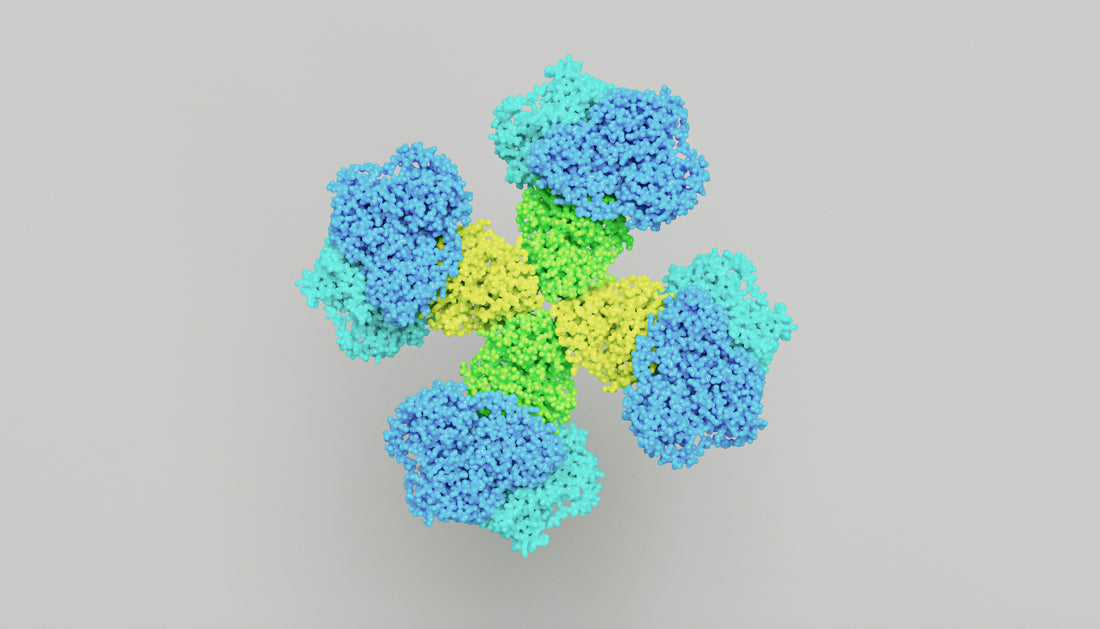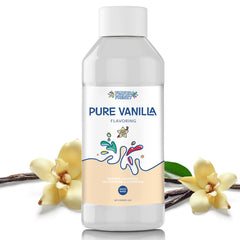Your Cart is Empty
Exploring the Multifaceted Benefits of L-Glutamine - Flavor Frenzy

L-glutamine plays a crucial role in various physiological processes, including protein synthesis, immune function, and gut health. Its conditionally essential status underscores its significance in critical care scenarios, such as recovery from surgery, severe burns, and during periods of intense immune activity.
As a key fuel for immune cells, glutamine supports lymphocyte proliferation, cytokine production, and the overall integrity of the gastrointestinal tract. About 90% of glutamine production occurs in muscle tissue.
Glutamine supplementation has been shown to reduce mortality rates in critically ill patients, with a 24% decrease in mortality observed in patients receiving glutamine supplementation compared to standard therapy.
Understanding its natural functions and clinical applications can provide valuable insights into its therapeutic potential.
For accurate and recent statistics, specific studies or data should be referenced directly. The information provided here is for illustrative purposes and may need to be updated with the latest research findings for accuracy.
Want to purchase l-glutamine – Get your custom quote today!
Discover also our products:
Natural Functions and Roles
L-glutamine is the most abundant amino acid in the human body, playing a critical role in various physiological processes. It serves as a building block for proteins, fuels immune cells, and supports intestinal health. Glutamine maintains the gut barrier, aids in enterocyte proliferation, and regulates inflammatory pathways, making it vital for immune function and overall health.
Over 80% of the body's glutamine is found in skeletal muscle, and its concentration is 30 times higher than in human plasma. The human body synthesizes approximately 40 to 80 grams of glutamine per day, but this can increase significantly during times of stress or illness.
Glutamine's role in immune function is underscored by its high consumption rate by immune cells, which can be equal to or greater than glucose during infection and high catabolism. Glutamine is considered conditionally essential in certain catabolic states, such as trauma or sepsis, where the body's demand for it can exceed endogenous production.
Glutamine supplementation has been shown to offer various health benefits, including supporting immune function, reducing muscle soreness, and improving intestinal health in certain conditions like Crohn's disease and gut inflammation.
However, it is essential to note that the long-term effects of high glutamine intake are unknown, and individuals should consult with healthcare professionals before adding supplements to their diet.
Clinical Uses and Benefits
Glutamine, the most abundant amino acid in the body, plays a crucial role in maintaining immune health and gut integrity. It is particularly effective in critical care settings, where it reduces infections and complications, especially post-surgery and in critically ill patients. Approximately 70% of patients with severe burns who received glutamine supplementation showed improved healing and reduced hospital stays.
Glutamine supports gut health by aiding in the recovery from burns, surgery, and severe illnesses. It helps maintain the intestinal lining, ensuring the body absorbs necessary nutrients and protects against conditions like leaky gut syndrome.
This amino acid is also essential for muscle recovery and detoxification processes, making it a valuable supplement for athletes and individuals recovering from illness or injury.
Furthermore, glutamine is the only FDA-approved treatment for reducing serious complications of sickle cell disease. It has also shown promise in alleviating symptoms of HIV/AIDS, such as involuntary weight loss, and in supporting the recovery of patients undergoing cancer treatments.
Clinical trials have demonstrated that high-dose glutamine supplementation (>0.25 to 0.30 g/kg/day IV or ≥30 g/day enterally) can significantly reduce mortality and hospital stays in critically ill patients.
Given its versatility and efficacy, glutamine is an important therapeutic agent in various clinical contexts, offering significant benefits for immune health, gut integrity, and overall recovery.
Biosynthesis and Metabolism
Glutamine Biosynthesis and Metabolism play critical roles in maintaining the body's overall health.
Glutamine is synthesized by glutamine synthetase (GS), an enzyme that catalyzes the reaction between glutamate and ammonia, consuming one ATP molecule in the process.
The hydrolysis of glutamine is mediated by glutaminase, converting glutamine to glutamate and ammonium ions.
In cells, glutamine serves multiple functions. It is:
- Converted to α-ketoglutarate for energy production in the TCA cycle.
- Used as an N-donor for the biosynthesis of amino acids, nucleic acids, amino sugars, and vitamin B coenzymes.
This versatile role highlights glutamine's essential contribution to various metabolic pathways.
Additionally, research has shown that glutamine is the body's most abundant amino acid, representing about 20% of the total free amino acids in the blood and 40% to 60% in tissues such as the liver and skeletal muscles.
Historical Background and Research
The study of glutamine supplementation has a rich history, marked by key discoveries that highlight its critical role in various physiological processes.
Key Milestones:
- 1883: German chemist Ernst Schulze first discovered glutamine from beet juice.
- 1930s: Sir Hans Adolf Krebs conducted pivotal studies on mammalian tissue metabolism, including glutamine hydrolysis and synthesis.
- 1980s: Eric Newsholme's groundbreaking work elucidated glutamine's importance in immune cell function, particularly in leukocytes and macrophages.
These foundational studies underscored glutamine's significance in metabolism and immune function, paving the way for further research.
Today, it is recognized that glutamine not only serves as a building block for proteins but also plays a crucial role in maintaining intestinal integrity, immune system health, and cellular fuel.
Recent studies indicate that dietary glutamine intake may be inversely related to the risk of mortality, particularly cardiovascular mortality.
Continued Research and Clinical Applications:
- Investigations into glutamine supplementation have expanded its potential benefits, including reducing infections in surgical patients and improving outcomes in critically ill individuals.
- Emerging evidence suggests that glutamine may help prevent certain chemotherapy-induced side effects in oncology settings.
- The role of glutamine in maintaining gut function and immune health remains a subject of ongoing research, with implications for both healthy and ill populations.
Purchasing and Wholesale Options
When purchasing glutamine supplements, several key considerations ensure quality and efficacy:
- Supplier Certifications are crucial; look for GMP (Good Manufacturing Practice) and FDA (Food and Drug Administration) registrations, which confirm adherence to quality standards.
- Product Purity is essential; check for specifications like assay, loss on drying, and heavy metal content to confirm purity.
- Packaging Options matter; choose from various forms such as powder, capsules, or custom formulations tailored to your needs.
Recent research on glutamine supplementation has highlighted its limited benefits in certain areas. For example, it has been found that glutamine supplements do not significantly enhance athletic performance or immune function in healthy individuals. This knowledge can help guide your purchasing decisions, ensuring you choose supplements that align with well-supported benefits.
When evaluating suppliers, consider the following:
- Regulatory Compliance: Ensure that the supplier adheres to FDA and GMP standards.
- Quality Control: Look for rigorous testing protocols to guarantee product purity.
- Customer Reviews: Assess feedback from other customers to gauge reliability and effectiveness.
Approximately 70% of immune cells rely on glutamine as a fuel source, making it a potentially beneficial supplement for immune health under specific conditions, such as during intense exercise or illness.
Want to purchase l-glutamine – Get your custom quote today!





